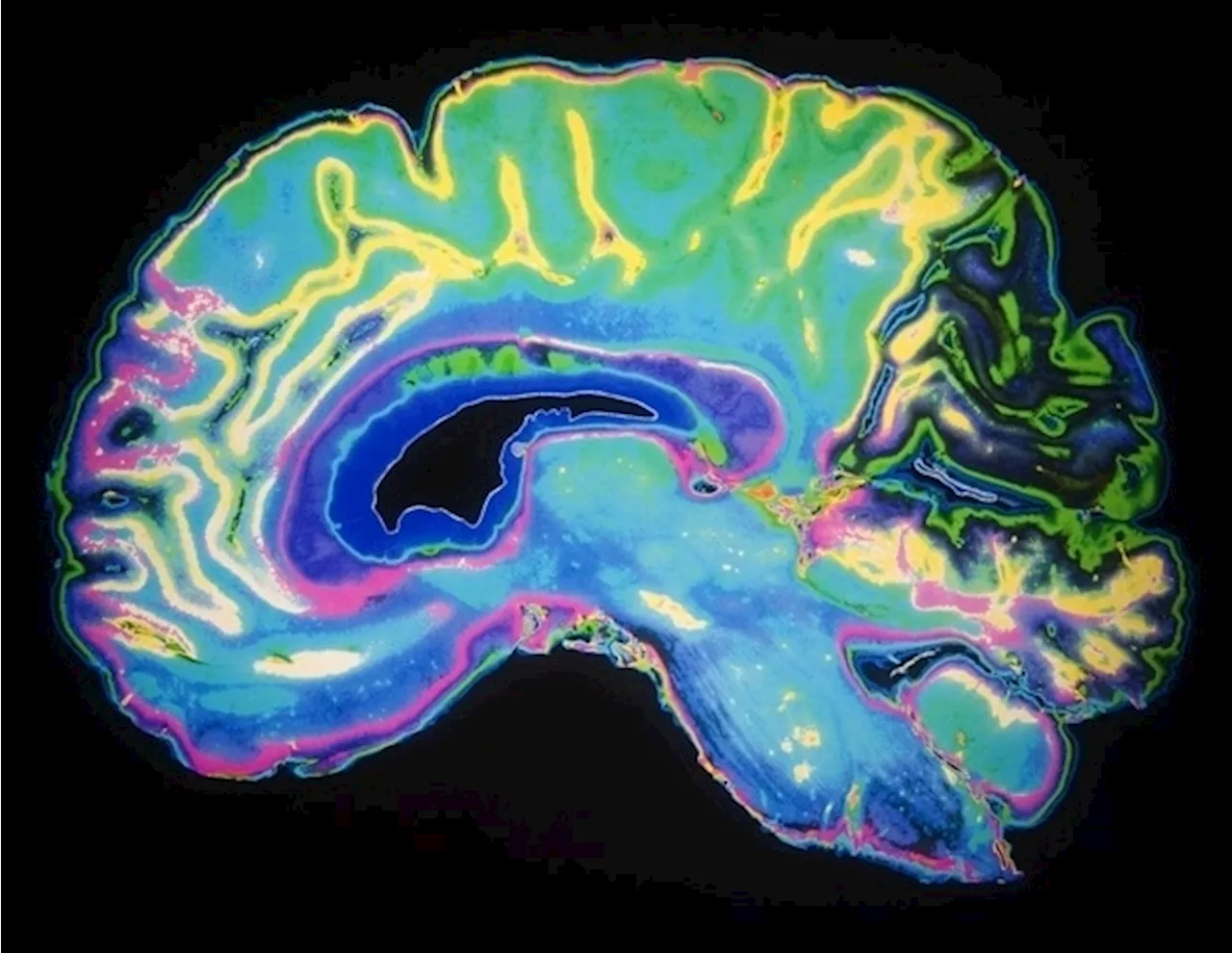A new study of high school football players found that concussions affect an often-overlooked but important brain signal.
Radiological Society of North AmericaNov 26 2024 The findings are being presented next week at the annual meeting of the Radiological Society of North America .
Most previous neuroscience research has focused on rhythmic brain signaling, which is also called periodic neurophysiology. On the other hand, aperiodic neurophysiology refers to brain signals that are not rhythmic." "While it's often overlooked, aperiodic activity is important because it reflects brain cortical excitability," said study senior author Christopher T. Whitlow, M.D., Ph.D., M.H.A., Meschan Distinguished Professor and Enterprise Chair of Radiology at Wake Forest University School of Medicine.
Pre- and post-season resting-state magnetoencephalography data was collected from 91 high school football players, of whom 10 were diagnosed with a concussion. MEG is a neuroimaging technique that measures the magnetic fields that the brain's electrical currents produce. Slowed aperiodic activity was present in areas of the brain that contain chemicals linked with concussion symptoms like impaired concentration and memory.
The findings from the study may also influence tracking of post-concussion symptoms and aid in finding new treatments to improve recovery.
Concussion Medicine Neuroimaging Neurophysiology Neuroscience Ph Research
United Kingdom Latest News, United Kingdom Headlines
Similar News:You can also read news stories similar to this one that we have collected from other news sources.
 Research identifies the brain's 'locus coeruleus' as key player in sleep cyclesResearchers at the University of Lausanne have identified a novel role for the brain's 'locus coeruleus' in sleep and its disruptions.
Research identifies the brain's 'locus coeruleus' as key player in sleep cyclesResearchers at the University of Lausanne have identified a novel role for the brain's 'locus coeruleus' in sleep and its disruptions.
Read more »
 Antibiotic activity altered by interaction with nanoplastics, new research showsNanoplastics significantly alter antibiotic interactions, reducing effectiveness and increasing resistance, posing serious implications for health and ecology.
Antibiotic activity altered by interaction with nanoplastics, new research showsNanoplastics significantly alter antibiotic interactions, reducing effectiveness and increasing resistance, posing serious implications for health and ecology.
Read more »
 Brits into Christmas spirit as early as mid-November, research showsThe start of November is when we’re first likely to experience festive merriment, with nearly half (43%) feeling it’s never too early to start enjoying Christmas
Brits into Christmas spirit as early as mid-November, research showsThe start of November is when we’re first likely to experience festive merriment, with nearly half (43%) feeling it’s never too early to start enjoying Christmas
Read more »
 Research shows Brits into Christmas spirit as early as mid-NovemberThe start of November is when we’re first likely to experience festive merriment, with nearly half (43%) feeling it’s never too early to start enjoying Christmas
Research shows Brits into Christmas spirit as early as mid-NovemberThe start of November is when we’re first likely to experience festive merriment, with nearly half (43%) feeling it’s never too early to start enjoying Christmas
Read more »
 Research shows how trained immunity links to cardiovascular diseaseWhen thinking about the immune system, most people think about B and T cells and how they can be trained to recognize pathogens, preventing re-infections.
Research shows how trained immunity links to cardiovascular diseaseWhen thinking about the immune system, most people think about B and T cells and how they can be trained to recognize pathogens, preventing re-infections.
Read more »
 Research shows how public criticism during COVID-19 impacted teacher wellbeingIntense public pressure on teachers to 'get back to school' during the COVID-19 lockdowns deepened an already widespread sense that they were undervalued, and left some actively rethinking their careers, research shows.
Research shows how public criticism during COVID-19 impacted teacher wellbeingIntense public pressure on teachers to 'get back to school' during the COVID-19 lockdowns deepened an already widespread sense that they were undervalued, and left some actively rethinking their careers, research shows.
Read more »
